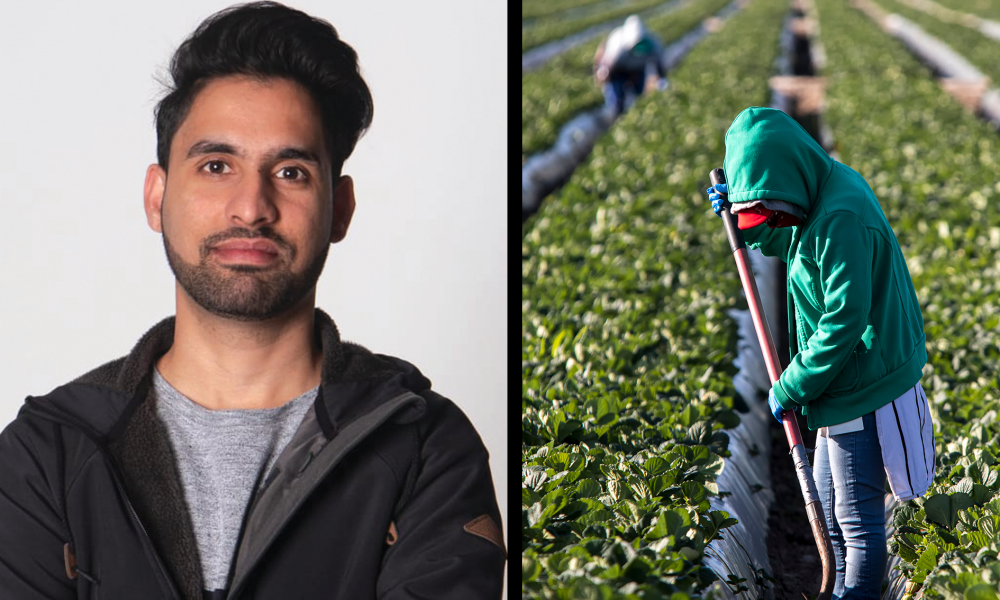Last year, the Government introduced a new temporary visa to protect migrant workers from ruthless exploitation at the hands of their employers.
The Migrant Exploitation Protection Work Visa allows workers to leave exploitative work, giving them half a year to find another job and retain their residency.
It’s urgently needed. The Ministry of Business, Innovation and Employment (MBIE) reported 500 complaints of migrant worker exploitation between 2020 and 2021 – a 259 per cent increase from the previous year.
MIGRANT EXPLOITATION
Pacific Legal immigration lawyer Richard Small attributes this exponential rise to deportations being paused during the pandemic, which “removed the bat from above the heads of migrant workers,” encouraging them to report their exploitation in ever greater numbers.
But Mandeep Bela, PSA organiser and president of Union Network of Migrants (UNEMIG), paints a more distressing picture.
WORKING UNDER THE TABLE
“The pandemic has been a relief in the sense that the Government, due to worker shortages, allowed many migrants to work for any employer,” Mandeep explains. “This helped but, in the long run, visas will still be attached to individual employers – which is the number one cause of migrant exploitation.”
Research conducted by UNEMIG found 65 per cent of migrant workers attributed their exploitation to having a visa attachment to a particular employer; a problem the Migrant Exploitation Protection Work visa does little to address.
The Government’s plan to axe Partner Work Visas at the end of the year will likely make things worse, Mandeep explains, shackling migrants to exploitative situations and financial dependence.
The Partner Work Visa currently allows partners to access visas for the same amount of time as their migrant worker partners, with the option to work or study for up to three months.
It’s feared that the change – slated to take place in December – will force migrants to subsist on a single income or work under the table to make ends meet.
FINANCIAL DEPENDENCE
Greens spokesperson for immigration Ricardo Menéndez March said: “If the Government wants to create a high-wage economy they should be focusing on lifting wages across the board, instead of limiting the working rights of migrant families.
“It will be a lot harder for migrant families to survive on one income and forcing migrants into financial dependence will create power dynamics that can result in abuse.”
What would tackle the root causes of exploitation? For Mandeep, the solution is obvious: organise migrant workers into unions.
“We need preventative measures to root out exploitation,” Mandeep continues. “That means linking visas to skills, rather than employers, to redress the power imbalance. But we’re never going to get there unless migrant workers are properly organised.”
A PERSONAL JOURNEY
Mandeep’s campaign against migrant exploitation comes from a deeply personal place. When he first arrived in Aotearoa, Mandeep experienced exploitation first hand while working as a kiwifruit picker and living in overcrowded conditions in an isolated five-bedroom farmhouse with 15 other migrant workers.
“I was in a very precarious position because I didn’t know my rights,” Mandeep explains. “I was told by my employer that if I wanted to secure my future here, I shouldn’t join a union.”
Mandeep says migrant workers are often reluctant to unionise because they’re afraid of rocking the boat – a fear that comes right from the top.
COMMON UNDERSTANDING
“Migrants’ union protections are often slim to none,” Mandeep says. “But by joining the network, they can access support and advice from other migrants who have been in similar situations, even if they don’t belong to a union themselves.
“That’s why we set up UNEMIG; to fight disinformation by helping migrant workers understand the role of unions in the workplace, while educating New Zealanders about how migrant exploitation can drives wages down across the board.”
Because most migrants to New Zealand are relatively young – the vast majority are between the ages of 25 and 34 – Mandeep has had great success connecting with UNEMIG’s members on social media. The
network now boasts more than 11,000 followers on Facebook alone.
“We used this momentum to encourage workers to join a union and learn more about their rights at work,” Mandeep explains.
ENDING EXPLOITATIVE WORK
It’s an approach that’s been so successful, Mandeep hopes to replicate it within the PSA.
“The New Zealand Council of Trade Unions (NZCTU) recently signed a motion to create a diverse cultures network,” says Mandeep “We’re looking at the possibility of setting up a separate migrants’ network within the PSA.”
“It’s partly because of my own experience of being exploited at work,” Mandeep concludes. “But I want to do whatever I can to help migrants in similar situations, now that I’m in the position to do so.”
